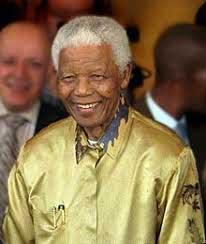Reply To:
Name - Reply Comment
It is election time again in Sri Lanka and as usual we see different party political leaders vying for nomination, though most people see most leaders as seeking mainly personnel gain or glory. More than 70 years after Independence most people say they see few if any main political party leaders who wish to serve the people sincerely, selflessly and sacrificially with the virtues of honesty and integrity, accountability and transparency. With a few exceptions, the others appear to have turned politics into a big business robbing the country or the people of billions of rupees and enjoying luxuries like air-conditioned toilets while millions of people are forced to wallow in pig-sties without basic needs such as food, shelter, clothing, education and healthcare facilities. In desperation most people appear to be looking for a model leader who could inspire and encourage them but it is like finding a spring in the desert.

If world models are needed, then we have the South African leader Nelson Mandela whose virtues and values we and our leaders could reflect upon as the United Nations celebrated Nelson Mandela International Day on July 18. In a resolution, the UN General Assembly recognizes Mr. Mandela’s values and his dedication to the service of humanity in conflict resolution, race relations and promotion and protection of human rights. It also recognises his contribution to reconciliation, gender equality and the rights of children and other vulnerable groups, the fight against poverty and the promotion of social justice, the rights of prisoners and the work of prison staff. The Resolution acknowledges his contribution to the struggle for democracy internationally and the promotion of a culture of peace throughout the world.
Mr. Mandela was born into the Madiba clan in the village of Mvezo, in the Eastern Cape, on July 18, 1918. Hearing the elders’ stories of his ancestors’ valour during the wars of resistance, he dreamed also of making his own contribution to the freedom struggle of his people. Mr. Mandela, while being politically involved from 1942, only joined the African National Congress in 1944 when he helped to form the ANC Youth League. On October 9, 1963 Mr. Mandela joined 10 others on trial for sabotage in what became known as the Rivonia Trial. While facing the death penalty his words to the court at the end of his famous “Speech from the Dock” on 20 April 1964 became immortalised:
“I have fought against white domination, and I have fought against black domination. I have cherished the ideal of a democratic and free society in which all people live together in harmony and with equal opportunities. It is an ideal which I hope to live for and to achieve. But if needs be, it is an ideal for which I am prepared to die.”
On June 11, 1964 Mr. Mandela was convicted and imprisoned for life in Robben Island. While still in prison, he initiated talks about an ultimate meeting between the apartheid government of President FW de Klerk and the ANC. Eventually they were jointly awarded the Nobel Peace Prize. He was released on February 11, 1990, nine days after the unbanning of the ANC. Mr. Mandela immersed himself in official talks to end white minority rule and in 1991 was elected ANC President to replace his ailing friend, Oliver Tambo. On May 10, 1994 he was inaugurated as South Africa’s first democratically elected President.
Mr. Mandela could have served many terms as some of our leaders want to but he quit after one term. Perhaps he knew that power corrupts. He believed it was more blessed to give than to receive, to let go than to cling on. He obeyed the spiritual command to love his enemies, bless those who curse him and help those who hurt him. He lived in a meek and humble way, not allowing pride or the privilege of his position, to damage his principle of servant leadership or feet-washing service to the people. His life was not built on sand or like a sandcastle as are the lives of so many leaders. Instead he built his life on a foundation of rock so that no storm could shake the foundation – whether he was in a prison or in a presidential palace. Mr. Mandela believed that what is not given is lost. Therefore, he gave and gave and continued to give to others, that is why his was not just a life but a legend and he lives forever.